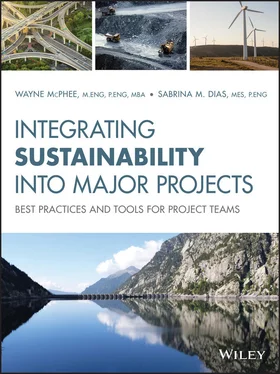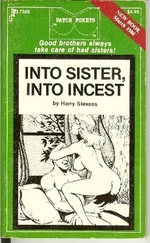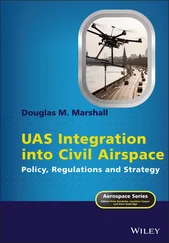1 Cover
2 About the Authors About the Authors Wayne McPhee, M.Eng., P.Eng., MBA is a sustainability specialist who has 30 years experience as a technology developer, consultant, team leader, and senior manager. Wayne has led the development and management of cross-disciplinary project sustainability programs within global engineering firms. His experience includes a wide range of major projects, including new mines, highways, LNG terminals, wind farms, hazardous waste removal, and brownfield redevelopment. His work has included sustainability planning and strategy, risk workshops, sustainability management systems, water and energy management, regulatory approvals, and stakeholder engagement. He has lectured on integrating sustainability into project management and written papers on strategy and sustainable decision making. Sabrina Dias is the founder and CEO of SOOP Strategies Inc., a highly specialized mining and sustainability brand delivering intelligent sustainability performance solutions. She is a regular guest lecturer at universities and industry conventions. Her field work includes Tanzania, Madagascar, Australia, New Caledonia, Papua New Guinea, northern Canada, the United States, and South America. Sabrina has 20 years of experience in the extractives sector, achieving high levels of sustainability performance. A licensed Professional Engineer of Ontario, Sabrina holds a Bachelor's Degree of Ceramic Engineering and Society (McMaster University), Master's Degree of Environmental Studies (York University), and Graduate Diploma in Business and Environment (Schulich School of Business).
3 Acknowledgments Acknowledgments Many major projects around the world are built on indigenous lands and impact indigenous peoples. We acknowledge this and will continue to learn from indigenous peoples about true sustainable development. The authors would like to thank the indigenous communities with whom we have worked over the years for sharing their traditional knowledge and the wisdom of generational thinking for sustainability. The authors would like to thank the team at Wiley, in particular Margaret Cummins and Kalli Schultea, who have provided guidance and support for the development of the book, from approach and strategy through to production and marketing. Wayne would like to thank his wife, Eileen, who not only provided enthusiastic support for the book but also provided design guidance, editing of the early draft, and design of the figures in the book. Also, thanks to my three daughters, Lucy, Hannah, and Theresa, for their support in the ongoing challenge of integrating sustainability into every part of our life. I would like to thank all of the sustainability colleagues who have shared their experiences and knowledge, especially Alan MacDonald, who provided invaluable insights and feedback on the initial book concept. And thank you to all of the many people I have worked with on project teams over the last 30 years for sharing their insights, experiences, and knowledge. My opinions are my own and not those of my employer. Sabrina is most thankful to her husband, Jeffrey, and son, Theophil, whose unconditional support and patience while writing this book continues to provide endless reasons for gratitude. I have much appreciation for colleagues I have worked with and learned from over the years, and lovely friends who guided and encouraged my writing practice. I especially want to thank Jacques Gérin and David Wheeler, mentors and friends who were early champions of sustainable development and consistently demonstrate how to live and work with integrity. And finally, immense gratitude to Benoit Taillon, who, with one conversation and a cup of tea, changed the trajectory of my career – for the better.
4 CHAPTER 1: Introduction CHAPTER 1 Introduction Sustainability books typically start with dire warnings about the future of the planet and a “call to arms” to fix all of the world's problems. In considering a book about sustainability for major projects, we have purposefully decided to take a pragmatic project management view of sustainable development and provide a set of processes and tools that can help project teams create better, more sustainable projects: projects with a smaller environmental footprint, projects that maintain support from the local community, and projects that achieve financial goals now and in the future. And, over time, a collection of better projects around the world can help to ensure a more sustainable future for the planet. Integrating sustainability into major projects is still an emerging field of practice. No two projects are the same, so using scorecards and checklists can only get you so far. Project teams need to explore all the sustainability tools and tricks of the trade to create custom solutions that fit the location, the technology, the industry, owners of the project, and the groups of people who have a vested interest in the project. We have tried to provide a logical and structured approach for integrating sustainability into project delivery that can be used to build alignment across an entire project team. In addition to the typical goal of getting government approvals for the project, good sustainability programs can help ensure that budgets and schedules are met, projects risks are understood and managed, and projects can obtain the necessary development financing. It is important to understand that sustainability should not be a standalone discipline off to the side, separated from the rest of the project organization. Rather, sustainability must be integral to every aspect of project delivery. We have made every effort to demonstrate how sustainability is a team sport where everyone on the project team contributes. This book will lead project teams through the various types of major projects, explain how sustainability can be integrated into traditional project management functions, and demonstrate how sustainability can play a critical role throughout the project lifecycle.
1.1 Terminology 1.1 Terminology There are many ways to describe the integration of environmental, social, and economic development challenges and opportunities into a project. Here are some of the most common terms: Sustainability Sustainable development Responsible development Corporate citizenship Corporate social responsibility Creating shared value Although there are subtle differences in definition, all of the terms are basically capturing the same concepts. This book uses the term “sustainability,” but project teams can and should use whatever terminology allows them to create a better project. If your organization or industry primarily uses other terminology, then it is best to stick with what is familiar and accepted. Managing sustainability on major projects is hard enough without trying to introduce new terminology to your organization or industry.
1.2 Creating Value by Integrating Sustainability 1.2 Creating Value by Integrating Sustainability Value creation on major projects is traditionally assessed by a strict financial analysis: Was the project delivered on-budget? These days, most organizations and financial institutions are evolving how they see “value.” And they are now incorporating concepts of brand and reputation, risk minimization, and responsible investing into the evaluation of an organization's or project's success. Project sustainability efforts are often seen as an additional cost, a negative line item on the project budget. If managed properly, however, sustainability becomes a critical component of creating value out of the project. Sustainability programs can: Drive innovation that can reduce overall project costs. Reduce the risk of project delays that can increase budgets and delay revenue generation from the finished project. Help secure and maintain community support that can streamline approvals. Reduce project risks, which can improve access to capital and lower financing costs. Create a better, more attractive project that draws potential buyers and increases project valuation.
Читать дальше












